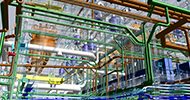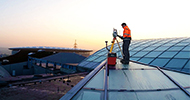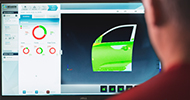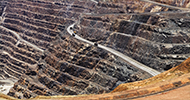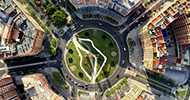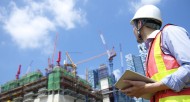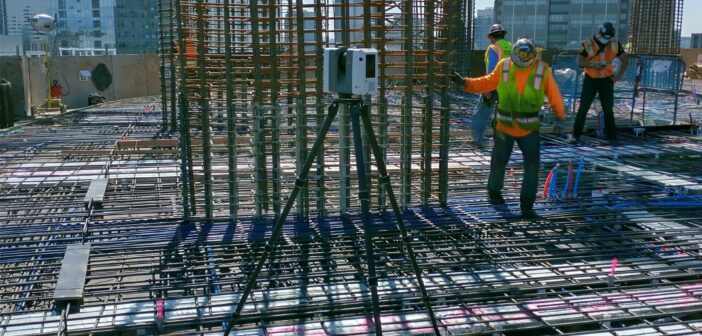Reality capture is becoming an ever-present part of the construction process, and Hexagon Geosystem’s reality capture capabilities provide an unrivalled level of hardware, software, and services integration from conception to deliver autonomous data capture and workflows.
As more and more contractors and owners see the value provided by 3D scans and digital construction models, we anticipate reality capture will become a part of almost every build.
If you’re considering using reality capture in your project, it’s worthwhile to consider its benefits as well as its challenges.
In this article, we’ll detail both the beneficial and the challenging sides of reality capture in construction.
WHAT IS REALITY CAPTURE IN CONSTRUCTION?
![]()
Reality capture in construction is the process of using lasers to create accurate, detailed digital representations of physical space. Reality capture is used to capture, measure, and document reality.
Reality capture employs cutting-edge technology to create “point clouds” consisting of billions of digital data points. This point cloud is then processed to create detailed and measurable 3D visualizations that accurately reflect real-world dimensions.
In construction and architecture, laser scanning is used to…
- Document the reality of on-site conditions before they’re covered up
- Interrogate elements that have been covered in order to determine their exact location
- Create Building Information Models (BIMs) in a process often referred to as Scan to BIM
- Help prevent and identify installation errors
- Improve coordination between contractors and sub-contractors
- Support retrofitting and renovation projects
- Support building operations
WHAT ARE THE BENEFITS OF REALITY CAPTURE IN CONSTRUCTION?
While there are many benefits of reality capture in construction, here are the ones our owner and contractor clients talk about most.
1. Speed of data collection
Traditional methods of documenting site conditions, such as photography or hand measurement, can take days or weeks. Reality capture, on the other hand, can take as little as a few hours to document an entire building. This enables both faster and more frequent data collection.
The equipment used in reality capture is capable of capturing millions of data points every second. This data is then processed into a single usable dataset.
Having quick access to near-real-time conditions and dimensions helps speed up project timelines and reduce delays.
2. Reduced rework costs
Reality capture has the ability to save owners and contractors money by reducing the amount of rework required and its associated costs.
With 3D scans, rework can often be avoided altogether thanks to the increased ability for project stakeholders to virtually inspect site conditions, identify deviations from design, and request changes before work proceeds.
In the event rework becomes necessary, labor and materials costs can be reduced because the scans will show the exact location of each element in the building, limiting the need to tear down walls or dig up slabs.
3. Improved accuracy
Modern building practices and materials often requires fractions of an inch or millimeter accuracy, and reality capture grants you exactly that.
Most reality capture equipment and software enables a very high degree of precision, enabling exact measurements which can speed up the ordering and fabricating of materials, scoping of work, and other processes.
Because it captures entire buildings, there’s also an increased likelihood that you’ll have all of the measurements you need, and that nothing will be missing from your documentation.
4. Improved collaboration and coordination
Because 3D scans can be accessed virtually, collaboration and coordination between stakeholders becomes much easier.
When traveling to the site is not possible, surveyors, clients, inspectors, and other stakeholders can get a better idea of a space or take measurements virtually using point cloud data.
Contractors can also respond to RFIs and arrange work remotely using building models.
5. Reduced safety risk
Because 3D scans allow you to accurately measure spaces and elements from your computer, you can avoid the safety risks that come along with getting into tight or high-up places to make a measurement.
For example, instead of sending someone up a ladder to measure a ceiling joist, you can simply click and drag between points on the completed scan.
In addition to improving health and safety compliance, this is also more likely to result in faster, more accurate measurements.
CHALLENGES OF IMPLEMENTING 3D LASER SCANNING
While there are many benefits of using reality capture in construction, there are also challenges. Here are some of the most important:
1. Experience is necessary
3D scanning equipment and software requires skilled operators. If you’re relying on your own employees to handle this process, they’ll need to spend time and energy training on how to use the technology.
Another option is to use a partner who will already have the equipment and talent ready to go.
2. Location access
While faster than other forms of gathering documentation, reality capture does require access to the site and takes time to set up and operate.
On active sites, this may be difficult to coordinate. As a result, daily scans may not be possible, and a schedule that’s based on longer intervals or specific milestones will be preferable.
3. Cost
While reality capture technology can reduce overall project costs (as described above), there is an upfront capital expenditure required.
If operating reality capture in-house, this cost is much higher, as the necessary equipment and software can be very expensive. In addition, you’ll need to pay for training or hire experienced operators.
Outsourcing your reality capture operations to a partner helps reduce your expenses, as they will already own the technology and will be able to send experienced operators to your site.
GET 3D LASER SCANNING WITH BUILDING SOLUTIONS
Don’t let the challenges of 3D laser scanning keep you from taking advantage of its benefits. Choosing to work with a partner for 3D laser scanning will reduce your upfront costs and help you unlock the value of this technology immediately.
Building Solutions is an experienced provider of reality capture services. With 20+ years of experience in construction documentation and local teams in more than 500 cities around the world, we can hit the ground running and start laser scanning your sites fast.






